
America’s first Black bishop and his struggle to rebuild the African American presence inside the Episcopal Church
In 1918, the Right Reverend Edward T. Demby took up the reins as Suffragan (assistant) Bishop for Colored Work in Arkansas and the Province of the Southwest, an area encompassing Arkansas, Texas, Kansas, Oklahoma, Missouri, and New Mexico. Set within the context of a series of experiments in black leadership conducted by the Episcopal Diocese of Arkansas in the early decades of the twentieth century, Demby's tenure in a segregated ministry illuminates the larger American experience of segregation disguised as a social good.
Intent on demonstrating the industry and self-reliance of black Episcopalians to the church at large, Demby set about securing black priests for the diocese, baptizing and confirming communicants, and building schools and other institutions of community service. A gifted leader and a committed Episcopalian, Demby recognized that black service institutions, such as schools, hospitals, and orphanages, would be the means to draw African Americans back to the Episcopal Church, which they had abandoned in droves after emancipation as the church of their former masters.
For more than twenty years, hamstrung by white apathy, lack of funds, jurisdictional ambiguity, and the Great Depression, Demby doggedly tried to establish the credibility of a ministry that was as ill-conceived as it was well intended. Michael J. Beary skillfully narrates the shifting alliances within the Episcopal Church and shows how race was but one aspect of a more elemental struggle for power. He demonstrates how Demby's steadiness of purpose and non-confrontational manner gathered allies on both sides of the color line and how, ultimately, his judgment and the weight of his experience carried the church past its segregationist experiment.
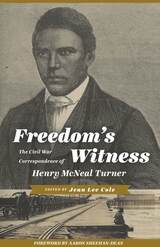
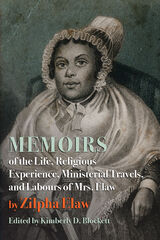
As a young Black orphan indentured to a Quaker family in Bristol, Pennsylvania, Zilpha Elaw (c. 1793–1873) decided to join the upstart Methodists in 1808. She preached her first sermon a decade later, ignoring her husband and the many church leaders, clergy, and laity who tried to silence her. Elaw’s memoir chronicles the first twenty years of her forty-year itinerant ministry during massive Protestant revivalism in the United States and England.
Elaw preached from Maine to Virginia, attracting multiracial and multidenominational audiences that included powerful men, wealthy White women, poor families, and enslaved communities. She moved from Bristol to Burlington, New Jersey, then to Nantucket, Massachusetts, and finally, in 1840, to London’s East End. In England, Elaw’s celebrity expanded, and at least twice she drew crowds so large they caused human stampedes and multiple injuries.
Blockett’s introduction and extensive annotations draw on newly unearthed information about the entirety of Elaw’s evangelism to provide context for this remarkable story of an antebellum Black woman’s personal and professional mobility.
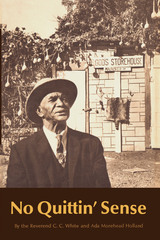
This story, set in the Piney Woods country of East Texas, spans most of a century, from shortly after the close of the Civil War to the 1960's. It is the story of Charley White, who was born in the middle of those woods—in a decaying windowless log cabin a few years after his mother and father were freed from slavery. His childhood, lived in almost unbelievable poverty, was followed by financial stability achieved in middle age through years of struggle. And then, in order to obey God's will, he abandoned this secure life, and for forty years he waged a one-man war on poverty and intolerance.
Winner of the Carr P. Collins Award (best nonfiction book) of the Texas Institute of Letters, No Quittin' Sense presents the story of Rev. C. C. "Charley" White, whose life has inspired thousands of readers since the book was first published in 1969.
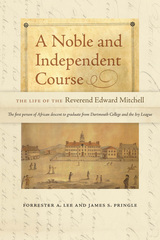
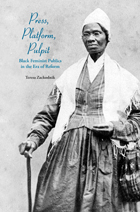
Press, Platform, Pulpit examines how early black feminism goes public by sheding new light on some of the major figures of early black feminism as well as bringing forward some lesser-known individuals who helped shape various reform movements. With a perspective unlike many other studies of black feminism, Teresa Zackodnik considers these activists as central, rather than marginal, to the politics of their day, and argues that black feminism reached critical mass well before the club movement’s national federation at the turn into the twentieth century . Throughout, she shifts the way in which major figures of early black feminism have been understood.
The first three chapters trace the varied speaking styles and appeals of black women in the church, abolition, and women’s rights, highlighting audience and location as mediating factors in the public address and politics of figures such as Jarena Lee, Zilpha Elaw, Amanda Berry Smith, Ellen Craft, Sarah Parker Remond and Sojourner Truth. The next chapter focuses on Ida B. Wells’s anti-lynching tours as working within “New Abolition” and influenced by black feminists before her. The final chapter examines feminist black nationalism as it developed in the periodical press by considering Maria Stewart’s social and feminist gospel; Mary Shadd Cary’s linking of abolition, emigration, and woman suffrage; and late-nineteenth-century black feminist journalism addressing black women’s migration and labor. Early black feminists working in reforms such as abolition and women’s rights opened new public arenas, such as the press, to the voices of black women. The book concludes by focusing on the 1891 National Council of Women, Frances Harper, and Anna Julia Cooper, which together mark a generational shift in black feminism, and by exploring the possibilities of taking black feminism public through forging coalitions among women of color.
Press, Platform, Pulpit goes far in deepening our understanding of early black feminism, its position in reform, and the varied publics it created for its politics. It not only moves historically from black feminist work in the church early in the nineteenth century to black feminism in the press at its close, but also explores the connections between black feminist politics across the century and specific reforms.
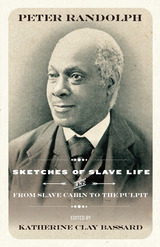
This book is the first anthology of the autobiographical writings of Peter Randolph, a prominent nineteenth-century former slave who became a black abolitionist, pastor, and community leader.
Randolph’s story is unique because he was freed and relocated from Virginia to Boston, along with his entire plantation cohort. A lawsuit launched by Randolph against his former master’s estate left legal documents that corroborate his autobiographies.
Randolph's writings give us a window into a different experience of slavery and freedom than other narratives currently available and will be of interest to students and scholars of African American literature, history, and religious studies, as well as those with an interest in Virginia history and mid-Atlantic slavery.
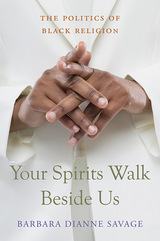
Even before the emergence of the civil rights movement with black churches at its center, African American religion and progressive politics were assumed to be inextricably intertwined. In her revelatory book, Barbara Savage counters this assumption with the story of a highly diversified religious community whose debates over engagement in the struggle for racial equality were as vigorous as they were persistent. Rather than inevitable allies, black churches and political activists have been uneasy and contentious partners.
From the 1920s on, some of the best African American minds—W. E. B. Du Bois, Carter G. Woodson, Benjamin Mays, Nannie Helen Burroughs, Mary McLeod Bethune, Charles S. Johnson, and others—argued tirelessly about the churches’ responsibility in the quest for racial justice. Could they be a liberal force, or would they be a constraint on progress? There was no single, unified black church but rather many churches marked by enormous intellectual, theological, and political differences and independence. Yet, confronted by racial discrimination and poverty, churches were called upon again and again to come together as savior institutions for black communities.
The tension between faith and political activism in black churches testifies to the difficult and unpredictable project of coupling religion and politics in the twentieth century. By retrieving the people, the polemics, and the power of the spiritual that animated African American political life, Savage has dramatically demonstrated the challenge to all religious institutions seeking political change in our time.
READERS
Browse our collection.
PUBLISHERS
See BiblioVault's publisher services.
STUDENT SERVICES
Files for college accessibility offices.
UChicago Accessibility Resources
home | accessibility | search | about | contact us
BiblioVault ® 2001 - 2024
The University of Chicago Press









